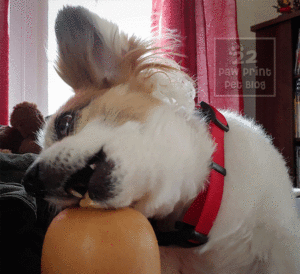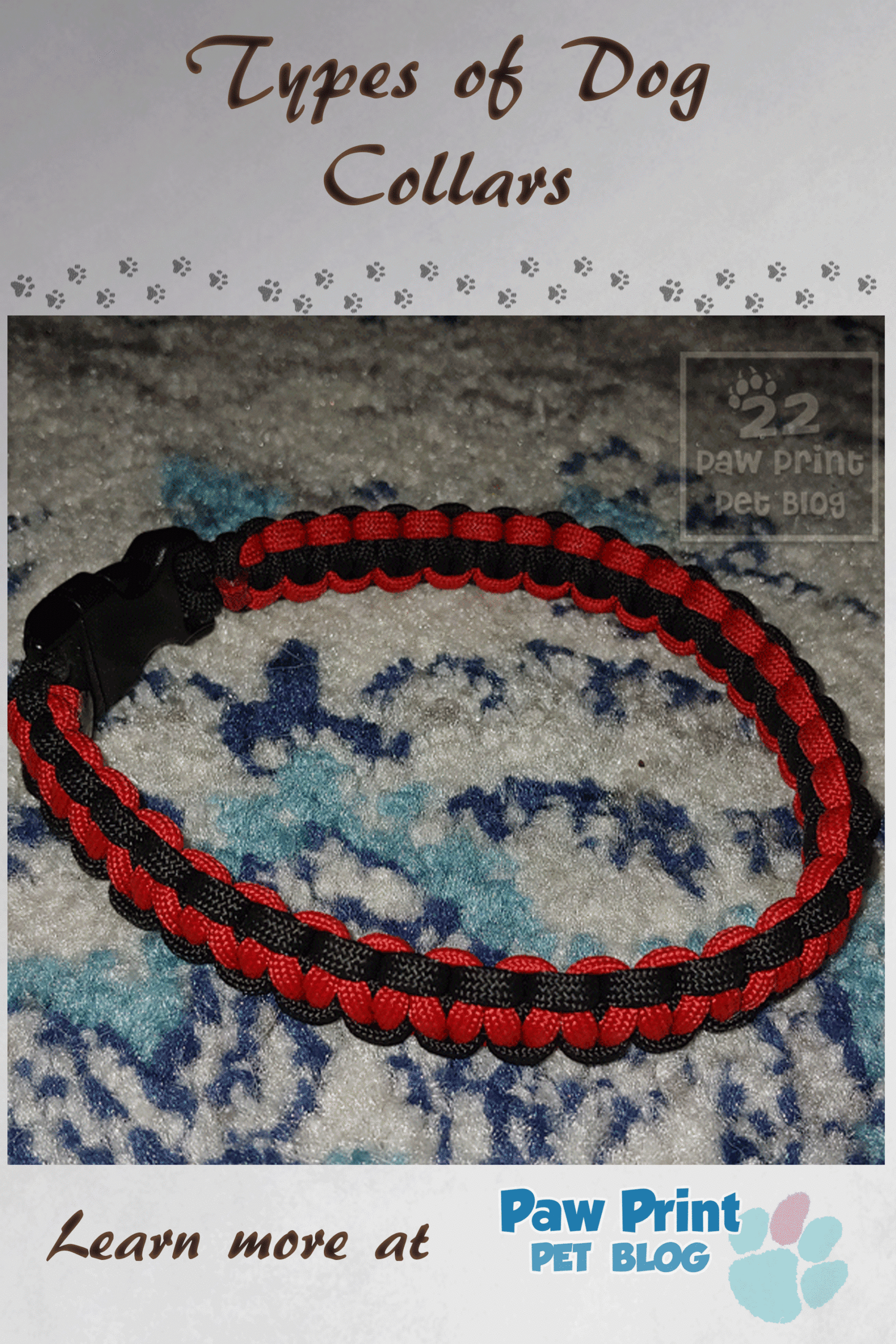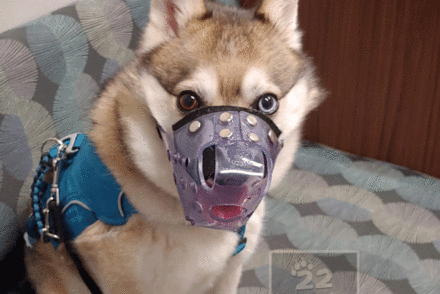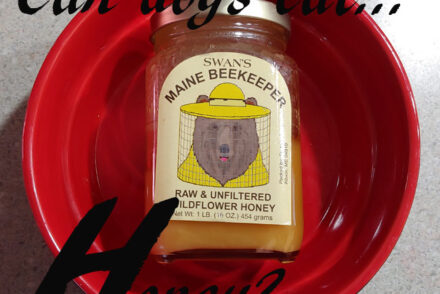
Types of dog collars: Do your dogs like wearing their collars? I remember when my Alaskan Klee Kai, Fenrir, was a puppy he wasn’t crazy about wearing his collar or his harness. I joked that he was an exhibitionist because he liked to run around ‘naked’. These days, though, things have changed. Fen is really good about letting me put his harness on him, and he actually loves wearing his collar. That sounds weird, right? But he often gets upset when I take his collar off. He tries to pick it up and put it back on himself.
Post Contents: [hide]
Not all collars are created equal!
I use collars exclusively as a form of ID for my two dogs. I walk them on harnesses. Being small dogs, I worry about putting a lot of pressure on their tiny necks. Small dogs are more prone to developing tracheal damage due to the pressure of collars.
Putting some extra time into researching different types and brands of collars is worthwhile. Finding the perfect collar is important for your pet’s comfort, and can also save you from having to replace your dog’s collar too often.
Basic Dog Collars
 Basic dog collars are usually adjustable, and buckle closed around your dog’s neck. Some are equipped with safety-release buckles that will allow your dog to pull out of his or her collar if it ever gets caught on anything. Quick-release buckles tend to be less secure though. Be careful if you’re using them to walk or hold onto your dog. Special breakaway collars are made to come off easily if your dog is in danger of choking. But this feature can be bypassed during walks so you don’t have to worry about your dog escaping.
Basic dog collars are usually adjustable, and buckle closed around your dog’s neck. Some are equipped with safety-release buckles that will allow your dog to pull out of his or her collar if it ever gets caught on anything. Quick-release buckles tend to be less secure though. Be careful if you’re using them to walk or hold onto your dog. Special breakaway collars are made to come off easily if your dog is in danger of choking. But this feature can be bypassed during walks so you don’t have to worry about your dog escaping.
Basic collars are commonly made from nylon or leather. They come in a wide variety of designs and colors, and can be a great way to show off your pup’s style. Be careful when choosing leather collars, as some dyed or painted leathers may stain your pets fur, or the color can chip. Rolled leather collars are durable, and work great for dogs with long fur. The rolled leather helps prevent hair loss or damage around where the collar lays. Leather cleaning and care products can be used to clean and maintain your pets collar to help keep it looking clean and new for longer.
Martingale Collars
Martingale Collars, commonly used for greyhounds and other sight hound breeds, are collars that help to prevent dogs from being able to slip out of their collars while walking on a leash. They have a special feature that allows them to tighten if your dog tries to pull out of their collar.
Slip Collars
Slip collars are usually simple collars designed to be easily slipped over your dog’s head. They are normally loose and not designed to be adjusted to your dog’s individual neck size the way that basic collars can be. Slip collars are used often during rescues, when you need to catch a dog and get a collar on them but may not know exactly what size you need. Slip collars are commonly used temporarily rather than left on dog’s as a form of ID. Some people use slip collars as a form of training collar, as they are often designed to tighten if your dog pulls against them.
Training Collars
Training collars are a hot button issue in the dog world. I don’t personally use things like choke chains on my own dogs. Since I don’t know a lot about them, I’m not going to write much about them here.
Some websites list head collars and harnesses as types of collars too. For the sake of this post, I’m only going to refer to collars that go around a dog’s neck.
Dogs, like people, have sensitive necks.
My own dogs are always walked on harnesses that are designed to avoid putting pressure on their delicate necks. I always recommend harnesses for walking dogs, but that doesn’t mean I don’t use collars too. My dogs wear collars as a form of ID. Although they are both micro-chipped, for someone to get their microchip info they’d have to be scanned by a vet or shelter. Collars equipped with clear ID info can be easily and quickly read by anyone.
My boys’ collars, knock on wood, have never come in handy as a form of ID because I’m very careful to make sure they never have any opportunities to wander. But you never know what’s going to happen, and it’s better to be safe than sorry. Plus, I do have fun picking out cute collars for my dogs.
Do you and your dog(s) prefer any specific type or brand of collar?











No Comments